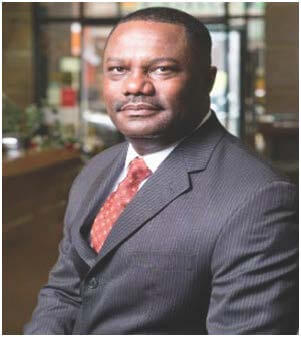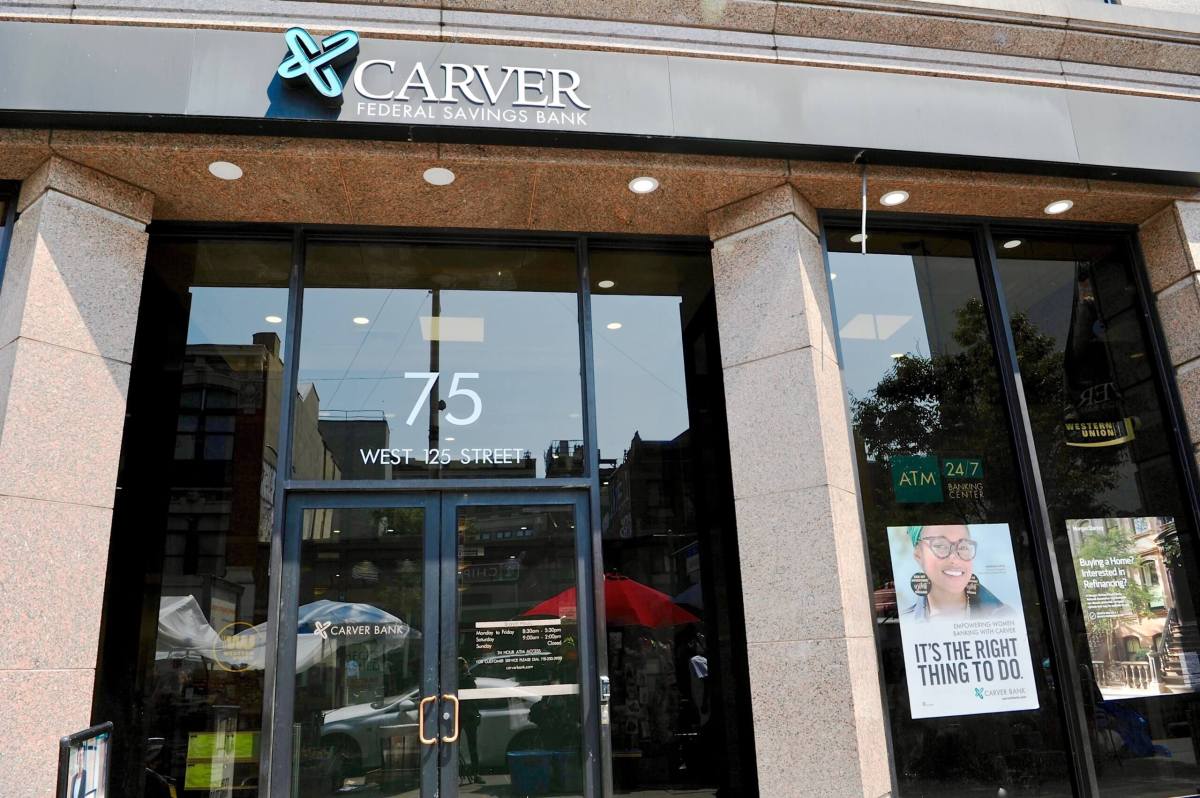Carver Federal Savings Bank plans to grow retail investors by reinvesting in the communities they serve through public and private sector partnerships, focus on job preservation and through teaching financial education skills.
“The key ingredient is to work through public and private sectors to ultimately deliver solutions that will help the community at large,” said Michael Pugh, president and CEO of Carver Bancorp, Inc., the holding company for Carver Federal Savings Bank which is a federally chartered stock savings bank that provides community-focused banking services.
Headquartered in Harlem, Carver was founded in 1948 to serve African American communities whose residents, businesses and institutions had limited access to mainstream financial services. Through the years, they’ve kept that commitment by reinvesting 80 cents of every deposited dollar back into the communities they serve.
Over the past few years, Carver has provided financial education skills and workshops for more than 16,000 people, including small businesses, to help them to thrive. Carver has also provided more than $23 million in access to capital to Women and Minority Entrepreneurs through public and private sector partnerships.
“If an investor or a new bank customer says, ‘I want to be a part of making a difference,’ then Carver is the right place for them,” Pugh said.
In the past year, Carver received a long-term equity investment of approximately $10 million from JPMorgan Chase. The additional capital, made available through the equity investment, means Carver can continue lending to Women and Minority Business Entrepreneurs and to nonprofit organizations, especially nonprofits that have social service programs and initiatives to add jobs to the communities that Carver serves.
Carver will also use the proceeds to expand its financial education programs in the diverse low-to-moderate income communities it serves and to explore new initiatives that create economic empowerment in communities of color.
Carver also partnered with Wells Fargo to provide customers with more access points to their money nationwide. Combined with the Allpoint ATM Network service, Carver’s customers can now make withdrawals, transfer funds and check account balances at more than 80,000 Wells Fargo ATMs worldwide without incurring a surcharge fee.

“So not only are we now addressing solutions that help provide capital, but we’re also making banking accessible at a national scale to the customers that we so cherish,” Pugh said. Adding, “The partnerships with Wells Fargo, Chase and others, are allowing us to continue to think about how we tackle the wealth gap issue,” Pugh said.
Carver impacts lives socially and economically by spending time in the communities they work with and talking to real people about real experiences, Pugh said. With Carver’s support, many small business entrepreneurs were able to grow their business from a concept to reality.
Over the past year, Carver successfully garnered roughly $30.5 million in capital through institutional investors such as JPMorgan Chase, Wells Fargo, Bank of America, and Morgan Stanley. But Carver also saw an interest in the overall stock performance of the company. Carver Federal Savings is publicly traded on the Nasdaq exchange. During Carver’s 52-week-high the stock moved from being about $6.60 a share to more than $14 a share.
“That really is a direct connection to our story, in terms of what we do, our mission, in terms of how we focus on serving and being physically out there to help customers- many of which need the support of an institution like Carver today, more than ever,” Pugh said.
During the pandemic Carver provided access to capital in greater New York City, distributing more than 400 loans to customers through the paycheck protection program. These loans helped support the preservation of more than 5,000 jobs in New York City.
Carver also recently launched a digital platform. Now, Carver is available in nine states for customers interested in opening an account from the comfort of their home.
“We’re also thinking about how we continue to provide greater access to credit solutions from a much more digital platform standpoint, and we’ve got some exciting things that are under research and development,” Pugh said.
Carver is close to launching a loan program that will support customers and small business entrepreneurs who don’t have traditional credit scoring because 53 million U.S. adults do not have traditional credit scores, according to Fair Isaac Corp., creator of the FICO metric.
“But we also know that a large percentage of those individuals without a traditional credit score, have other credit characteristics that make them completely eligible,” Pugh said. Carver’s new loan program would address that, helping small businesses recover from the pandemic and ultimately thrive as well as further supporting their mission of helping minorities and women entrepreneurs.





































